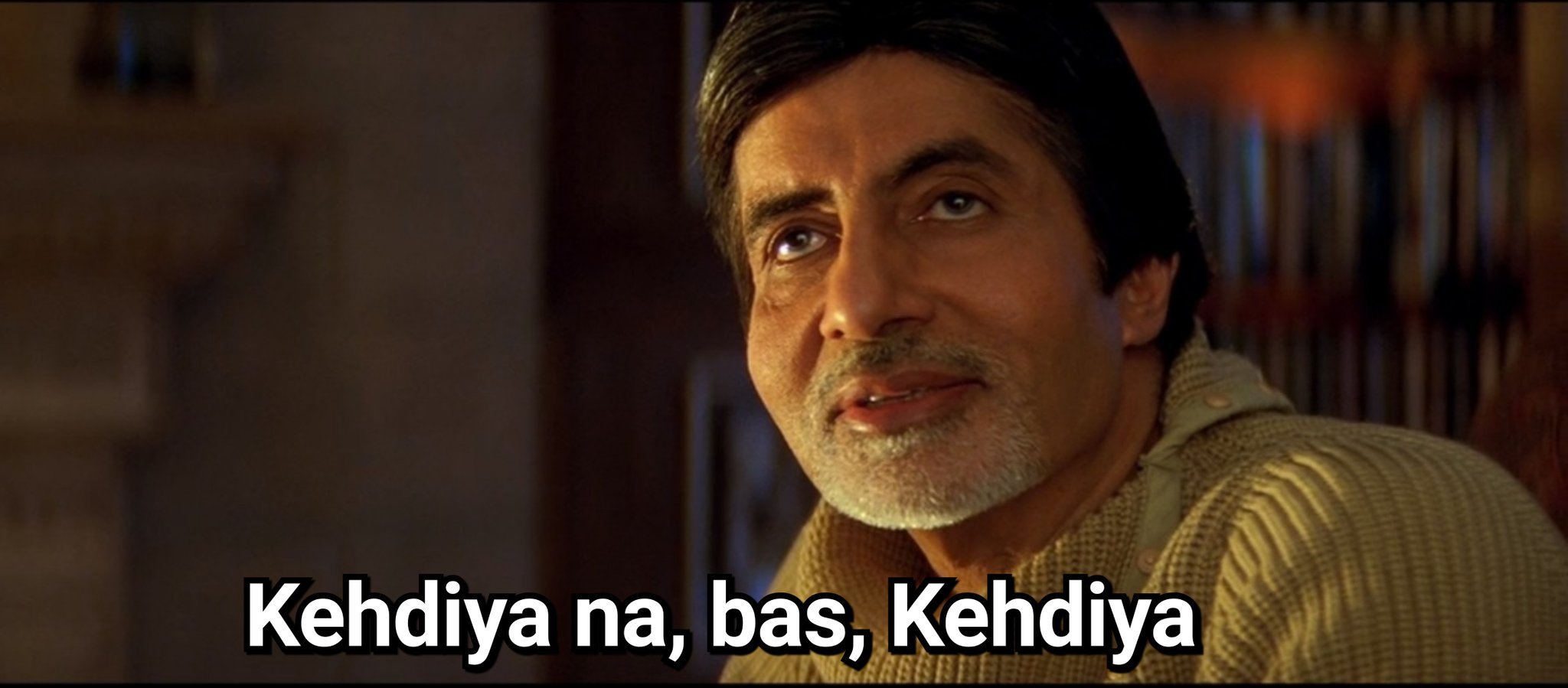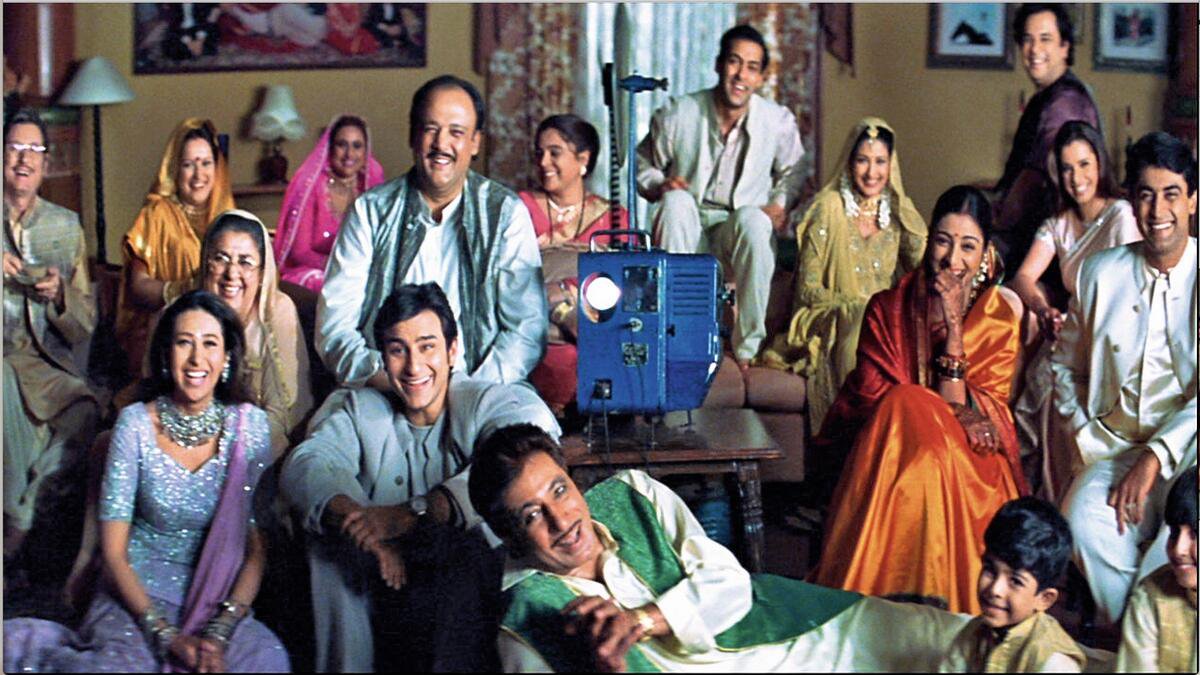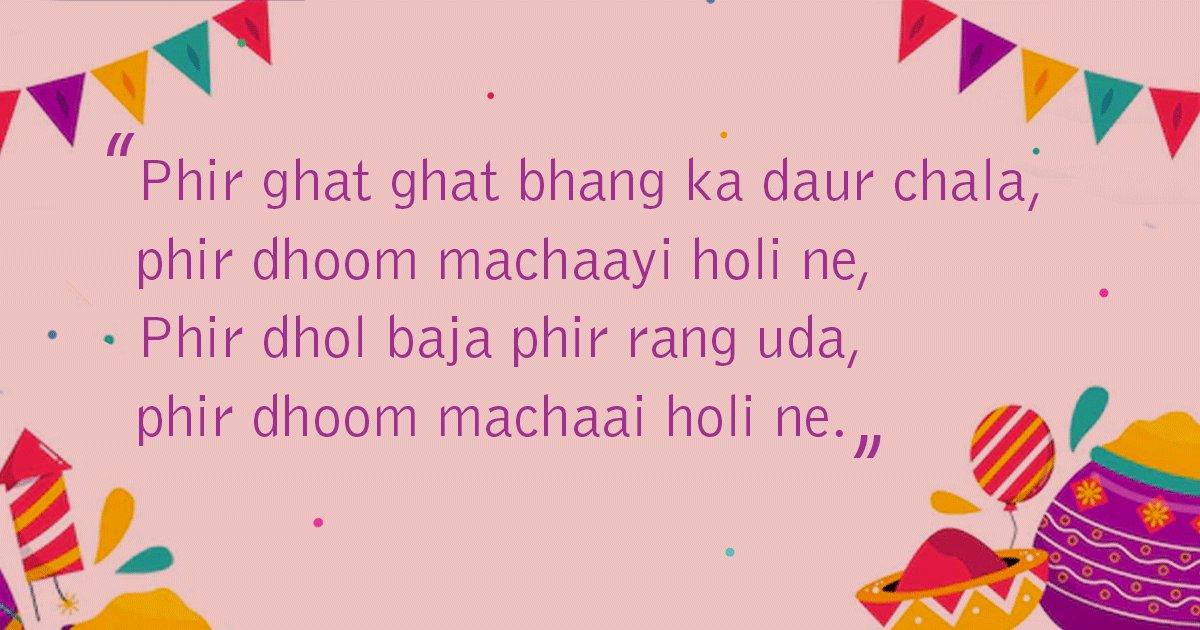Disagreeing on anything with our families is bound to invite a reaction similar to what Amitabh Bachchan said in Kabhi Khushi Kabhie Gham – “keh diya na, bas keh diya”.

A Twitter user pointed this out in a thread where she said how disagreements in Indian families are often looked upon as disloyalty.
Disagreement in Indian families is looked upon as disloyalty. If you are not with me you are against me. This forces kids/women to show their loyalty to people they disagree with, eventually losing themselves in the process. It takes a lot of courage to disagree with family.
— Masth Minching (@masthminching) May 19, 2022
The user mentions how there is a common narrative that is often pushed around in desi families – “If you are not with me, you are against me.” And like every action, this narrative has its reaction. This often pushes family members to agree with someone even though they might not agree with their views. It is perfectly normal for members of one family to have differing views on a plethora of topics. But this narrative often pushes family members to forget their individual ideals and rather focus on “showing their loyalty”.

Disagreeing with your family comes with its own set of disadvantages in familial settings. While it is a “courageous” act, it raises the risk of being labelled as “the weird one in the family”. Apart from labelling, there is also the risk of being punished by a show of “anger or distancing”, and even humiliation.
Those who are courageous enough to do so are punished, either by way of anger or distancing. Sometimes even humiliation. They become the “black sheep”. The weird one in the family. That is a huge cost to pay for holding their own opinions. Be us or be a stranger. This is toxic +
— Masth Minching (@masthminching) May 19, 2022
All of these can be toxic. As humans, we thrive on connection and sticking together. And family is the first connection we have. So when our family becomes non-reciprocating towards our thoughts and ideas, it pushes us to not share things with them to avoid not having a family to fall back on.
+ and detrimental to independent thought and living. We are forced to become codependent and derive our worth from our family’s opinions of us. Because humans thrive on connection and we can’t afford to lose our primary source of connection, however fragile it may be. +
— Masth Minching (@masthminching) May 19, 2022
This leads to being codependent and not having an individual sense of oneself and the world. This is especially true when the person you disagree with is a figure of authority.
+ only way out of this is to truly understand who we are – with professional help where possible. What do we need? What makes us happy? What do we really think is success? What should our relationships look like? What would happen if we allowed ourselves to truly live?
— Masth Minching (@masthminching) May 19, 2022
This revelation struck a chord with others on Twitter and they agreed that disagreement is not a form of disloyalty.
that disagreenent can be respectful is something that must be taught. demanding obedience, respect and punishing people for not doing so is plain abuse. something the society needs to acknowledge and unlearn.
— Sidrah | سِدرَة (@SidrahDP) May 20, 2022
Yes disagreement is seen as fighting 😑
— Sukhada (@appadappajappa) May 19, 2022
readers: I lived it https://t.co/XQKfB0EKAo
— pfizer (thats not my name) (@faayza) May 20, 2022
The sense of self lost because of such situations is rarely talked. But the impact is hugely felt. https://t.co/qDYMp4OZeE
— Chochi Manish (@Dragoneyes_RM) May 20, 2022
Independence is something unheard of even after marriage even till old age u r always shackled. https://t.co/Dy7Ms3qnDv
— डॉ.रोहन (@raj189991) May 20, 2022
I had a disagreement with my father a while back, especially coz of my refusal to perpetuate casteism, endogamy & Islamophobia. His concluding statement was that “we’ll stay together as long as we can with our differing views & then, we can go on our separate ways.” https://t.co/nAKBK4v3UL
— Soumya Mishra (@soumya__mishra) May 20, 2022
Dear families, disagreements ≠ disrespect.

















